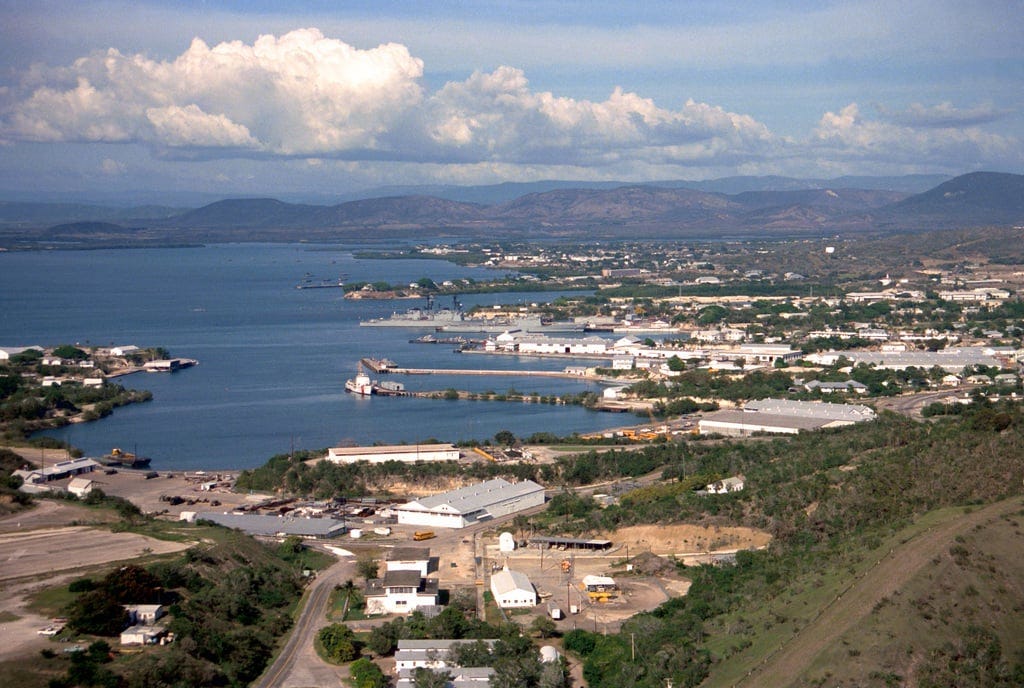Imagine a sanctuary city, but different
When he took power in the late 1970s, Chinese leader Deng Xiaoping recognized that Maoism had left the country is in a state of economic paralysis.
Deep reforms were needed — reforms which ran directly contrary to the ideology at the heart of the state.
Recognizing the considerable power still held by Maoists in the Party, the Deng government chose four locations far from the epicenter of political power, where the legal status of “free market” interactions was already muddled by trade with Western capitalist entrepots (Hong Kong, Macao, and Taiwan).
Here, they could allow an experiment with free-market economics without the political or cultural shock of nationwide reform.
The vitality and wealth generated by the Special Economic Zones proved irresistible, spawning new SEZs and loosening market restrictions across China — and now China is the largest economy in the world, and a ringing vindication of a very specific kind of socialism.
America is at a similar crossroads.
While China had agrarian Maoist communism, the defining ideology of the United States is gay race communism, administered under the terms of the 1964 Civil Rights Act, by an army of white-collar informers and political officers twice the size of the KGB at its height.
The analogy is encouraging in many ways. Our HR mandarins are nowhere near as powerful, as self-confident, or as brutal as the Maoists. Trump’s position is precarious, but Deng came to power after spending the better part of a decade in various forms of political detention — forced labor, re-education, exile, etc.
Deng was also attempting to modernize a nation with 75% literacy and a per-capita GDP of ~$150, lower than nearly every nation in Africa at the time.
Our problems are not so serious — but the solutions may be similar.
We need a place to prove out what Americans could still accomplish if they weren’t forced to spend half their productive effort evading the distortionary consequences of the Civil Rights Act.
This would be very ticklish to do if one had to revoke civil rights protections in any extant American jurisdiction, let alone all of them at once.
But what if there were an installation, right off the coast of the US, where government lawyers had already spent decades and tens of millions of dollars building exactly the kind of legal ambiguity we needed?
Guantanamo Bay is a lovely little slip of Caribbean seaside real estate, roughly the size of San Francisco, and two hours off the coast of Miami.
It has year-round warm weather and deep, wide harbors, with significant maritime infrastructure.
This property is currently administered by the US Navy, but — critically — it is not US territory. Instead, US Naval Station Guantanamo Bay is sovereign Cuban territory, on a perpetual lease of $4,085 a year which can only be terminated by mutual agreement. (the Cuban government supposedly keeps the checks in a desk drawer and does not cash them.)
After 9/11, the Bush administration argued that Guantanamo was essentially a procedural black hole where terrorists could be indefinitely detained without trial, tortured, etc. without Constitutional protections, since Guantanamo is not US territory.
Some of those excesses were rolled back by the Supreme Court, but there are still accused terrorists being held at Guantanamo without trial, 24 years later.
All of which is to say: the US Government is clearly willing to try new ideas at Guantanamo Bay.
Suppose the Trump Administration ordered the closure of the naval base and detention facility, and the conversion of the site into a Special Economic Zone.
It would take some work to lay out a legal framework for business incorporation, provision of services, etc., but that would be the fun: you could start over from a clean sheet, even more so than under Trump’s “freedom cities” proposal (which calls for new cities to be built in the continental US on federally owned land.)
Being technically “extraterritorial”, a city in Guantanamo Bay could declare itself exempt from restrictions on freedom of association that apply only on American soil.
You’d have to run all this by Clarence Thomas, of course, but I think he’d be into it.
It would be a unique and exotic legal construct — but again, the government signed off on solitary confinement, waterboarding, and force-feeding prisoners who haven’t been charged with a crime at Guantanamo. It’s hard to see how they’d say no to this.
It’s no coincidence that Americans stopped innovating in the physical world in the 1970s.
Innovation in the physical world requires physical scale, and physical scale requires employing more than 100 people, which requires an HR department.
But you can still innovate and make billions in the world of software with a small team of “picked men” — which is why virtually all of our most dynamic and impressive people spend their intellectual energy there.
If we want America to survive its present crisis, we need to give Americans a place where they are free to innovate in the real world — which means they must be free to associate.
This would be a repudiation of America’s postwar ideology as extreme as a free trade zone in a communist country — but we can build it in a state of exception, an ambiguous jurisdiction where it can operate freely without (directly) threatening the regime.
Like Hong Kong or Singapore, such a place could serve not only as an engine of economic and technological growth, but an escape valve for dissidents fleeing the sclerosis of the mainland.
And, eventually, the innovations and wealth that pour out of a free American city might remind mainland Americans of the kind of people they have been, and could be again.
EXIT News
On today’s full-group call (January 7th), we will hear from a former lead technical recruiter at a Fortune 500 company on how to get a tech job, with a special focus on dodging the HR bureaucracy and automated systems.
Next week we will have a Member Q&A with New Founding. We’ll discuss getting the guys connected with their venture fund, talent board, and real estate development in Tennessee. Recording will be available for Substack subscribers.
EXIT will have a table at the Coronation Ball January 19th at the Watergate, and I will be speaking. Tickets are sold out for the dinner, but you can still get into the reception later in the evening.
Tickets are on sale for Natal Conference, March 28th and 29th in Austin, Texas. use offer code NATALISM for 10% off. Early bird pricing expires soon — get your ticket ASAP!
New York City member meetup, January 11th in Midtown. See #new-england channel for details.
Dallas/Fort Worth member meetup, January 20th in Richardson. See #dfw channel for details.
Houston member meetup, February 7th. See #texas channel for details.
RSVP link for pre-inaugural DC cocktail hour (1/18) available to subscribers below the paywall. EXIT cocktail hours are a great opportunity to meet your local guys, and see if the full group is right for you.






